Study in
Canada
A canvas of natural beauty, where the northern lights dance, and the wildlife roams free.
- Relatively Peaceful, Safe & Orderly Country
- Scholarly Nations in the World
- Great way to Enhance University Degree with the Work Program
- Consistently Recognized in Top International Rankings
- Study intak happens in January, April, May, September
Canada is a modern and prosperous country with a top-notch infrastructure, welcoming people, and a breathtaking natural environment that is unparalleled anywhere else in the world.
Spanning over 9.9 million square kilometers, it’s the second-largest country globally, offering a vast array of activities and destinations to explore. Its lush greenery is home to about 10% of the world’s forest cover, providing a rich and diverse ecosystem.
For over 27 years, Canada has consistently ranked among the top 10 countries to live, making it an ideal study destination for international students seeking a high standard of living and a warm and welcoming environment. People from all corners of the globe are welcomed with open arms, adding to the country’s multicultural fabric and its reputation for tolerance and inclusivity.
Canada’s unparalleled natural environment boasts magnificent landscapes, including the towering Rocky Mountains, crystal-clear lakes, and sprawling national parks that are home to diverse wildlife. It’s an ideal destination for outdoor enthusiasts, offering a wide range of adventure activities and a chance to immerse oneself in nature’s tranquility.
Overall, Canada is an exceptional country that offers an unbeatable combination of modern infrastructure, friendly people, and unparalleled natural beauty. It’s a wonderful place to live, study, work, and explore, making it an ideal destination for people of all nationalities.
Study at top Institutes in Canada

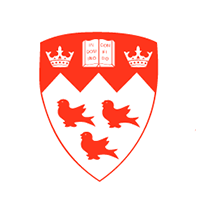

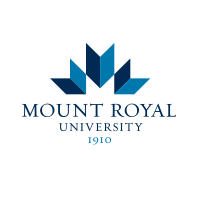


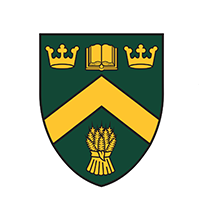

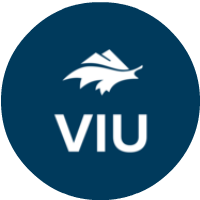



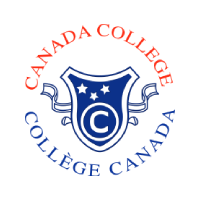
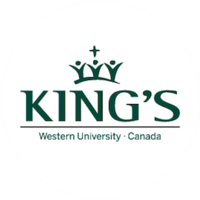

Why Study in Canada?

Quality & Afoordable Education
Canada is known for its world-class education system with affordable education options and top-ranked universities and colleges providing high-quality education.

Immigration Opportunities
Canada offers excellent post-study work opportunities, making it easier for international students to stay and work in the country after graduation.

Multicultural Environment
Canada is known for its multicultural environment, with people from different ethnicities and cultures living together in harmony.

Work Opportunities
International students can work part-time while studying in Canada, which helps them gain valuable work experience and earn money to support themselves.
The Education System in Canada
Canada stands out as a top destination for education, offering several compelling reasons for international students to choose it as their preferred study location. One of the key factors is Canada’s immigration-friendly policies, which make the process of studying in the country hassle-free. With streamlined immigration procedures and supportive measures in place, Canada welcomes and embraces international students with open arms.
In addition, Canada’s higher education system strikes a remarkable balance between affordability and excellence. The country’s institutions, including universities, colleges, and vocational schools, consistently rank among the best globally. Students can expect world-class education without breaking the bank.
Canadian universities typically follow a trimester system, dividing the academic year into fall, winter, and spring terms, with some institutions also offering a summer term. This structure allows students to take more courses per year, facilitating faster progress towards graduation and entry into the workforce.
The Cost of Studying in Canada
Studying abroad is a dream for many students, but the associated costs often pose a significant hurdle. However, Canada offers a remarkable opportunity for high-quality education at a more affordable price compared to other countries. While tuition fees are a significant consideration, it is important to remember that the cost of attending university encompasses more than just these fees. You must also account for additional expenses like books, housing, and living costs when planning your finances for university.
To give you an idea of the average tuition fees in Canada for different levels of study, here is an approximate cost per year:
- Diploma: CAD 12,000-22,000
- Undergraduate degree: CAD 5,000-30,000
- Postgraduate degree: CAD 18,000-60,000
- Doctoral degree: CAD 7,000-20,000
- Vocational: CAD 2,000-20,000
Keep in mind that these figures are approximate and can vary depending on the institution, program, and specific circumstances. It is advisable to research and consult with universities or educational advisors to obtain accurate and up-to-date information regarding the costs associated with your desired course of study in Canada.
Health Insurance for International Students in Canada
When studying in Canada as an international student, health insurance is a vital consideration. Here’s what you need to know:
Health insurance is mandatory for all international students in Canada, with each province offering its own plan known as Provincial Health Insurance. This coverage includes essential medical services such as doctor visits, hospital stays, and emergency care. However, certain services like prescription medications, dental care, and vision care may not be fully covered. To address these gaps, exploring additional private insurance options is advisable. Many educational institutions provide their own tailored health insurance plans, offering comprehensive coverage beyond the provincial insurance. It’s important to enroll in health insurance upon arrival and ensure coverage aligns with the duration of your study program for peace of mind during your stay
Visa requirements to study in Canada
Best places to study in Canada
When it comes to choosing the best places to study in Canada, several cities stand out:
Toronto: With its diverse population and top-ranked universities like the University of Toronto, Toronto offers a wide range of academic programs and research opportunities.
Vancouver: Situated on the West Coast, Vancouver combines stunning natural beauty with renowned institutions such as the University of British Columbia, making it an ideal choice for students interested in outdoor activities and quality education.
Montreal: Known for its vibrant arts scene and bilingual culture, Montreal is home to prestigious universities like McGill University and offers a unique blend of academic excellence and cultural immersion.
Halifax: Located on the Atlantic coast, Halifax boasts a close-knit community and excellent universities like Dalhousie University, making it an attractive option for those seeking a more intimate study environment.
Victoria: This picturesque city on Vancouver Island offers a serene setting and institutions like the University of Victoria, making it an excellent choice for students who appreciate natural beauty and a slower pace of life.
Kingston: Nestled on the shores of Lake Ontario, Kingston is known for its historic charm and esteemed institutions such as Queen’s University, providing a balance between academic rigor and a tight-knit community.
These cities offer outstanding educational opportunities, a high quality of life, and a welcoming environment for international students to thrive academically and personally.
The Education System in Canada
Canada stands out as a top destination for education, offering several compelling reasons for international students to choose it as their preferred study location. One of the key factors is Canada’s immigration-friendly policies, which make the process of studying in the country hassle-free. With streamlined immigration procedures and supportive measures in place, Canada welcomes and embraces international students with open arms.
In addition, Canada’s higher education system strikes a remarkable balance between affordability and excellence. The country’s institutions, including universities, colleges, and vocational schools, consistently rank among the best globally. Students can expect world-class education without breaking the bank.
Canadian universities typically follow a trimester system, dividing the academic year into fall, winter, and spring terms, with some institutions also offering a summer term. This structure allows students to take more courses per year, facilitating faster progress towards graduation and entry into the workforce.
The Cost of Studying in Canada
Studying abroad is a dream for many students, but the associated costs often pose a significant hurdle. However, Canada offers a remarkable opportunity for high-quality education at a more affordable price compared to other countries. While tuition fees are a significant consideration, it is important to remember that the cost of attending university encompasses more than just these fees. You must also account for additional expenses like books, housing, and living costs when planning your finances for university.
To give you an idea of the average tuition fees in Canada for different levels of study, here is an approximate cost per year:
- Diploma: CAD 12,000-22,000
- Undergraduate degree: CAD 5,000-30,000
- Postgraduate degree: CAD 18,000-60,000
- Doctoral degree: CAD 7,000-20,000
- Vocational: CAD 2,000-20,000
Keep in mind that these figures are approximate and can vary depending on the institution, program, and specific circumstances. It is advisable to research and consult with universities or educational advisors to obtain accurate and up-to-date information regarding the costs associated with your desired course of study in Canada.
Health Insurance for International Students in Canada
When studying in Canada as an international student, health insurance is a vital consideration. Here’s what you need to know:
Health insurance is mandatory for all international students in Canada, with each province offering its own plan known as Provincial Health Insurance. This coverage includes essential medical services such as doctor visits, hospital stays, and emergency care. However, certain services like prescription medications, dental care, and vision care may not be fully covered. To address these gaps, exploring additional private insurance options is advisable. Many educational institutions provide their own tailored health insurance plans, offering comprehensive coverage beyond the provincial insurance. It’s important to enroll in health insurance upon arrival and ensure coverage aligns with the duration of your study program for peace of mind during your stay
Visa requirements to study in Canada
Best places to study in Canada
When it comes to choosing the best places to study in Canada, several cities stand out:
Toronto: With its diverse population and top-ranked universities like the University of Toronto, Toronto offers a wide range of academic programs and research opportunities.
Vancouver: Situated on the West Coast, Vancouver combines stunning natural beauty with renowned institutions such as the University of British Columbia, making it an ideal choice for students interested in outdoor activities and quality education.
Montreal: Known for its vibrant arts scene and bilingual culture, Montreal is home to prestigious universities like McGill University and offers a unique blend of academic excellence and cultural immersion.
Halifax: Located on the Atlantic coast, Halifax boasts a close-knit community and excellent universities like Dalhousie University, making it an attractive option for those seeking a more intimate study environment.
Victoria: This picturesque city on Vancouver Island offers a serene setting and institutions like the University of Victoria, making it an excellent choice for students who appreciate natural beauty and a slower pace of life.
Kingston: Nestled on the shores of Lake Ontario, Kingston is known for its historic charm and esteemed institutions such as Queen’s University, providing a balance between academic rigor and a tight-knit community.
These cities offer outstanding educational opportunities, a high quality of life, and a welcoming environment for international students to thrive academically and personally.
Popular courses to study in Canada
Health and Science
Dental Studies
Physiotherapy
Computer Science & IT
Computer Science
Information Technology
Software Engineering
Business & Management
MBA
Sales & Marketing
Project Management
Have Questions?
For any remaining doubts, contact our experts. We have provided a list of frequently asked questions (FAQs) for reference
Yes, it is possible to study in Canada without IELTS. Some universities and colleges may offer exemptions or accept alternative English language proficiency tests such as TOEFL or Cambridge English Exams. Requirements vary depending on the institution and program.
When compared to numerous other countries, studying in Canada is highly affordable. Typically, tuition fees range from CAD 20,000 to CAD 30,000 per year.
The processing time for a study permit in Canada varies. On average, it can take around 4 to 20 weeks, depending on various factors such as the applicant’s country of residence, the time of year, and the complexity of the application.
Yes, in some cases, a medical examination may be necessary to obtain a study permit in Canada. The requirement for a medical checkup depends on factors such as the duration of the study program and the applicant’s country of residence. It is important to consult the official guidelines and requirements provided by Immigration, Refugees and Citizenship Canada (IRCC) to determine if a medical examination is mandatory for your specific situation.
Yes, international students in Canada can apply for permanent residence through various immigration programs. The most popular option is the Canadian Experience Class (CEC), which allows individuals with Canadian education and work experience to apply for permanent residency. Other programs include the Federal Skilled Worker Program (FSWP) and the Provincial Nominee Program (PNP), which may have specific streams or pathways for international students. It’s important to note that eligibility criteria, including language proficiency and work experience, must be met. Consulting with immigration authorities or an immigration lawyer can provide specific guidance based on individual circumstances.
Monday to Friday – 9am to 6pm

